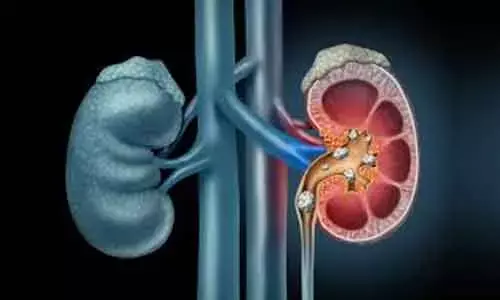- Home
- Medical news & Guidelines
- Anesthesiology
- Cardiology and CTVS
- Critical Care
- Dentistry
- Dermatology
- Diabetes and Endocrinology
- ENT
- Gastroenterology
- Medicine
- Nephrology
- Neurology
- Obstretics-Gynaecology
- Oncology
- Ophthalmology
- Orthopaedics
- Pediatrics-Neonatology
- Psychiatry
- Pulmonology
- Radiology
- Surgery
- Urology
- Laboratory Medicine
- Diet
- Nursing
- Paramedical
- Physiotherapy
- Health news
- Fact Check
- Bone Health Fact Check
- Brain Health Fact Check
- Cancer Related Fact Check
- Child Care Fact Check
- Dental and oral health fact check
- Diabetes and metabolic health fact check
- Diet and Nutrition Fact Check
- Eye and ENT Care Fact Check
- Fitness fact check
- Gut health fact check
- Heart health fact check
- Kidney health fact check
- Medical education fact check
- Men's health fact check
- Respiratory fact check
- Skin and hair care fact check
- Vaccine and Immunization fact check
- Women's health fact check
- AYUSH
- State News
- Andaman and Nicobar Islands
- Andhra Pradesh
- Arunachal Pradesh
- Assam
- Bihar
- Chandigarh
- Chattisgarh
- Dadra and Nagar Haveli
- Daman and Diu
- Delhi
- Goa
- Gujarat
- Haryana
- Himachal Pradesh
- Jammu & Kashmir
- Jharkhand
- Karnataka
- Kerala
- Ladakh
- Lakshadweep
- Madhya Pradesh
- Maharashtra
- Manipur
- Meghalaya
- Mizoram
- Nagaland
- Odisha
- Puducherry
- Punjab
- Rajasthan
- Sikkim
- Tamil Nadu
- Telangana
- Tripura
- Uttar Pradesh
- Uttrakhand
- West Bengal
- Medical Education
- Industry
Early surgery reduces narcotic requirement in patients with kidney stones: Study

Indianapolis, IN: Patients with renal colic due to stone disease who opt for trial of passage (TOP) versus surgical intervention as an initial treatment are more likely to require narcotic prescriptions, suggests a recent study in the journal Urology.
Lauren Abrams, Indiana University School of Medicine, Department of Urology, Indianapolis, IN, and colleagues evaluated if TOP or initial surgical intervention resulted in less narcotic analgesia utilization in patients with acute renal colic due to stone disease.
For the purpose, the researchers retrospectively evaluated 135 patients with acute renal colic due to nephroureterolithiasis managed by a single surgeon. Patients were offered surgical intervention with ureteroscopy (URS) or TOP. A subset of patients were stented with delayed URS due to presence of pain, infection, or a nonaccommodating ureter. The standard practice is narcotic-free URS, prescribing a stent cocktail including non-steroidal anti-inflammatories. The researchers compared rates of narcotic prescription over the entire treatment course for patients electing TOP vs surgery (primary or delayed URS). Rates of surgical intervention among initial TOP were secondarily analyzed.
In all 135 patients were included with 69 (51.1%) TOP as initial treatment, 39 (28.9%) stent with delayed URS, and 27 (20.0%) primary URS. Thirty-nine (56.5%) TOP patients underwent URS at a median time of 18 days (IQR 6-31 days) from diagnosis.
Key findings of the study include:
- More TOP patients required a narcotic prescription (60.9% vs 35.9% vs 33.3%, respectively) compared to patients undergoing initial stent or URS.
- When an opioid prescription was provided, the total morphine milligram equivalents prescribed among each group was not statistically significant.
"Our findings demonstrate that patients electing initial treatment with TOP for renal colic due to stone disease were more likely to require narcotic prescriptions than patients electing initial surgical intervention," concluded the authors.
The study, "Early Surgical Intervention for Symptomatic Renal and Ureteral Stones is Associated With Reduced Narcotic Requirement Relative to Trial of Passage," is published in the journal Urology.
DOI: https://www.goldjournal.net/article/S0090-4295(20)31178-X/fulltext
Dr Kamal Kant Kohli-MBBS, DTCD- a chest specialist with more than 30 years of practice and a flair for writing clinical articles, Dr Kamal Kant Kohli joined Medical Dialogues as a Chief Editor of Medical News. Besides writing articles, as an editor, he proofreads and verifies all the medical content published on Medical Dialogues including those coming from journals, studies,medical conferences,guidelines etc. Email: drkohli@medicaldialogues.in. Contact no. 011-43720751


